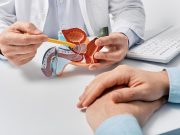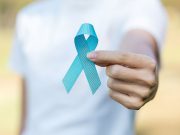Aquablation Appears to Be Safe, Effective for Enlarged Prostates
Benefits seen for retrograde ejaculation, urinary incontinence, with overall symptom relief and safety similar to that seen with laser surgery
FDA Approves Blujepa for Uncomplicated Urinary Tract Infections
Medication approved for uUTIs in women and pediatric patients aged 12 years and older
Bladder Wall Thickness Reflects Severity of Bladder Inflammatory Conditions
Findings in patients with interstitial cystitis/bladder pain syndrome can help with diagnosis of interstitial cystitis subtypes
Low-Frequency Bladder Vibration Beneficial for UTI in Spinal Cord Injury
Four weeks after LFBV, intervention group had significantly lower urinary leukocytes, postvoid residual volume, fewer signs and symptoms of UTI
Overactive Bladder Positively Associated With Arthritis
Positive association seen between osteoarthritis and OAB, but not for rheumatoid arthritis or psoriatic arthritis
Exercise Beneficial to Mental Health of Women With Chronic Pelvic Pain
Positive association seen for physical functioning with global mental health T-score; negative association seen for pain with GMH-T
RFK Jr. Says New HHS Decisions No Longer Required to Be Open for Public...
Newly appointed health secretary believes processing the comments under the Richardson Waiver puts too heavy a burden on the department
Eating Behaviors, Certain Foods Linked to Pelvic Floor Disorders
Middle-aged women with disordered eating style more likely to experience symptoms of stress urinary incontinence
Talazoparib + Enzalutamide Tied to Improved Overall Survival in Metastatic Prostate Cancer
Talazoparib + enzalutamide linked to improved survival for patients with mCRPC unselected for HRR gene alterations
Mobile Prostate Cancer Screening Clinic Can ID the Disease in Disadvantaged Men
127 patients underwent prostate biopsy, with 94 prostate cancers diagnosed; 86.2 percent had clinically significant disease



















